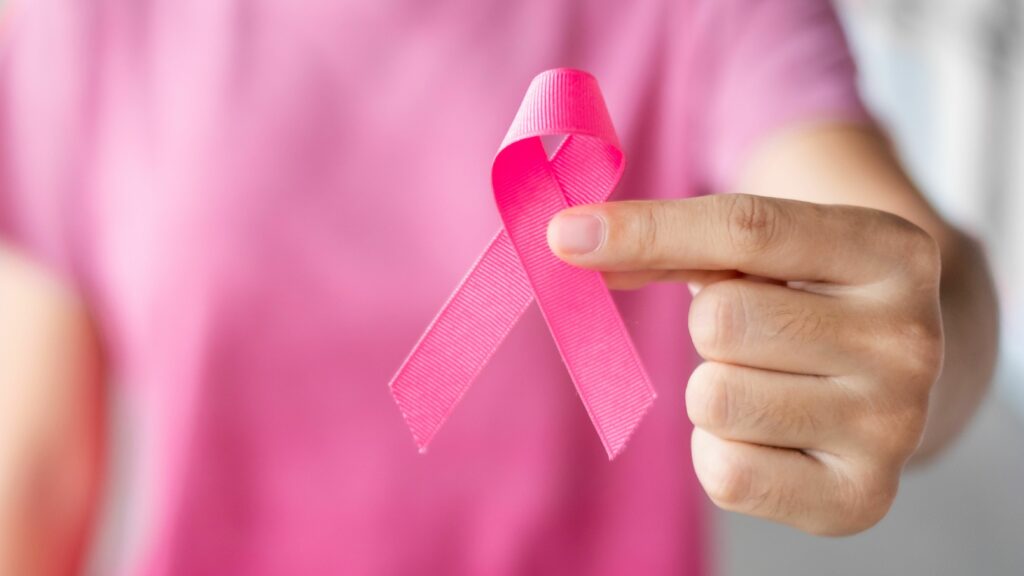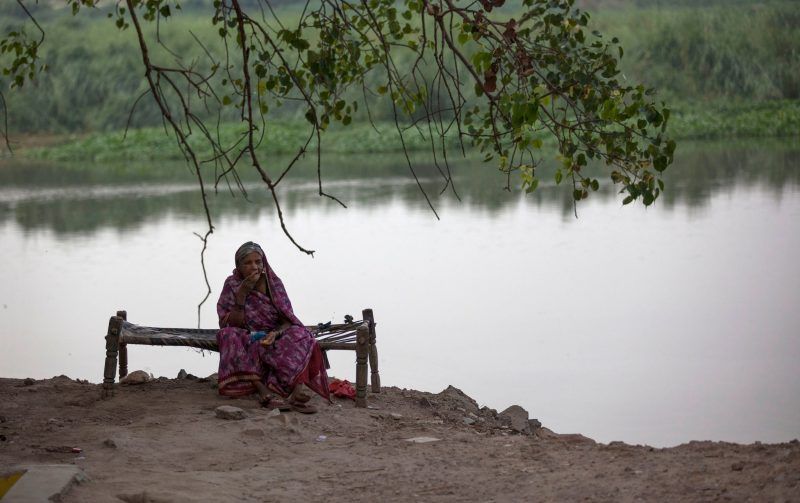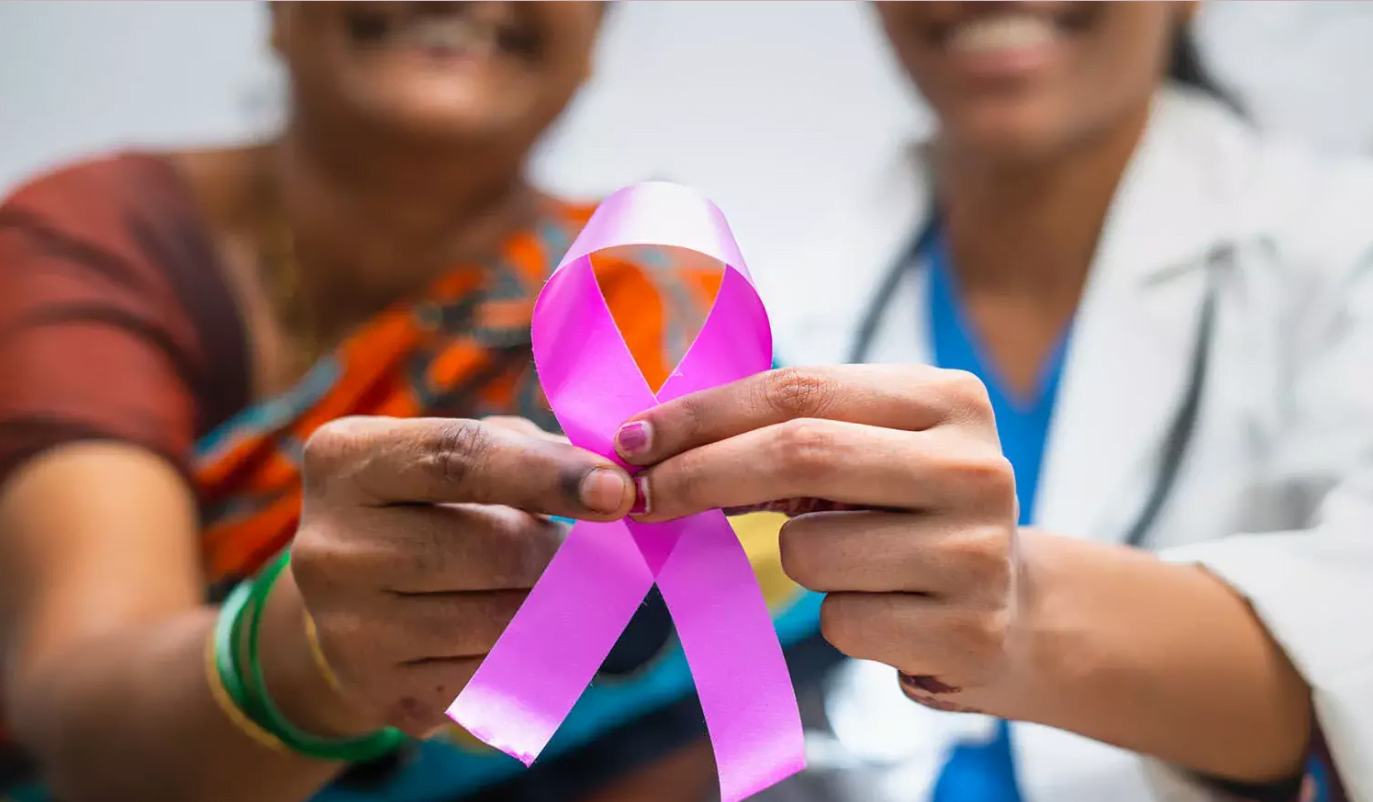India, often celebrated for its cultural heritage and traditions, faces a grim reality as it gains the unfortunate title of “Cancer Capital of the world.” A recent report by Apollo Hospitals declared India as a “Cancer Capital.” This alarming title reflects statistics and reports highlighting the increasing prevalence of cancer cases across the nation. However, its impact on women makes this situation even more poignant.
Over the last ten years, women’s cancer cases in India have increased significantly. This worrying trend is influenced by several factors, including changing lifestyles, pollution in the environment, genetic predispositions, and a lack of knowledge. Among the most common cancers afflicting Indian women are breast, cervical, ovarian, and uterine cancers.
What are the causes?
According to the World Health Organisation (WHO), cancer progresses from a precancerous condition to malignancy, usually through a multi-stage process in which normal cells undergo a transition into tumour cells. These changes result from the interaction between a person’s genetic composition and three primary categories of extrinsic factors:
- physical carcinogens, such as radiation from ionising and ultraviolet light.
- Chemical carcinogens include drinking water contaminated with arsenic, aflatoxin (a food contaminant), alcohol, tobacco smoke, and asbestos.
- biological carcinogens include infections brought on by certain bacteria, viruses, or parasites.
Don’t miss out on risk factors
Air pollution, bad food, alcohol use, smoking, and physical inactivity are risk factors for noncommunicable diseases including cancer.
Certain chronic infections increase the risk of cancer; this is especially problematic in low- and middle-income nations. Carcinogenic diseases, such as Helicobacter pylori, human papillomavirus (HPV), hepatitis B, hepatitis C, and Epstein-Barr virus (2), were linked to almost 13 per cent of malignancies reported worldwide in 2018.
The risk of liver and cervical cancer is elevated by the hepatitis B and C viruses and certain forms of HPV, respectively. HIV infection significantly raises the risk of some other malignancies, such as Kaposi sarcoma, and increases the chance of cervical cancer by a factor of six.
What are the major health concerns?
Breast Cancer: Among Indian women, breast cancer is the most frequent malignancy, and its incidence is rising among younger age groups. Reduced survival rates and late-stage diagnoses are the results of the problem, which is made worse by the absence of early detection and screening programs.

Cervical Cancer: Cervical cancer is still a major health concern for Indian women, especially with the availability of preventive measures like the HPV vaccination and routine screenings. Higher death rates arise from a lack of uptake of preventive interventions due to cultural barriers and limited access to healthcare facilities.
Ovarian and Uterine Cancer: Because of their late-stage diagnosis and vague symptoms, ovarian and uterine malignancies present several difficulties. The management of these tumours is made more difficult by a lack of therapeutic alternatives and inadequate healthcare infrastructure, which hurts the prognosis and quality of life of affected women.
Some medical challenges
Lack of Awareness and Screening: Low screening rates are a result of the stigma associated with cancer, especially cervical cancer, as well as restricted access to healthcare information. Successful therapy depends on early discovery, therefore this gap is harmful.
Financial Burden: Receiving cancer treatment can be quite expensive. Families are forced into debt by the high costs of hospital stays, medications, and diagnostics. Many people struggle to afford quality care because government programs frequently fall short.
Inadequate Infrastructure: There is too much strain on the healthcare system. Inequalities in access to high-quality care are caused by a lack of oncologists, specialised nurses, and treatment facilities in remote areas.
Social and emotional impact
It is impossible to overestimate the social and psychological toll that cancer takes on Indian women, especially in light of the persistent taboos and stigmas surrounding the illness. When a person is diagnosed with cancer, especially a woman, they often face prejudice, exclusion, and blame in conservative society.

Loneliness had a little smaller but still significant impact, individuals who experienced chronic loneliness had a 14 per cent higher likelihood of dying than those who did not. The psychological distress and social isolation experienced by female cancer patients are exacerbated by these societal beliefs, further complicating their already difficult recovery process.
Furthermore, the financial strain that comes with receiving cancer treatment exacerbates the difficulties that afflicted people and their families already endure. Due to the high expense of medical care and the income loss resulting from treatment-related interruptions, families are frequently forced into debt and poverty. This financial pressure worsens the socioeconomic disparities already present in Indian society in addition to affecting patients’ access to high-quality treatment. The cost of cancer treatment often prevents many families from getting the care and assistance they so desperately need.
The struggles of Caregivers
Caregivers, typically female family members, are the unsung heroes in the fight against cancer. While their unwavering support is vital for patients’ well-being, they face a multitude of challenges. The emotional burden is immense. Witnessing a loved one grapple with a debilitating illness can lead to anxiety, depression, and even caregiver burnout. This emotional toll is compounded by the physical strain.
Cancer treatment often leaves patients weak and dependent, requiring assistance with daily activities. Lifting, bathing, and managing personal hygiene can take a significant physical toll on caregivers, especially over extended periods.
Moreover, providing care takes an enormous amount of time and energy, which frequently leaves little time for a regular social life. Carers may have to give up interests, social events, and even time for themselves. Their capacity to give adequate care may eventually be hampered by the vicious cycle of loneliness and neglect that can be exacerbated by this seclusion and lack of social connection.
Research has indicated that a noteworthy proportion of carers encounter health issues themselves, underscoring the critical necessity of support networks and acknowledging their pivotal function in the healthcare system.
A call to action
In India, combating cancer requires a multifaceted approach. To combat stigma and promote early detection, public health efforts that raise awareness and routine screenings are crucial. Infrastructure for healthcare needs to be invested in, especially in rural regions. This entails expanding the pool of skilled nurses and oncologists as well as making sure that reasonably priced treatment alternatives are widely accessible. Families need financial support above all else.
The exorbitant cost of cancer treatment can be reduced by strengthening current government healthcare programs and looking into comprehensive insurance solutions. But there’s more to the issue than just medical intervention. Encouraging support groups for carers and offering mental health services are essential. By enabling carers to manage the mental and physical pressures, these platforms help protect their wellbeing and, ultimately, their capacity to provide the best support for their loved ones. To meet the emotional requirements of cancer patients and their families, comprehensive psychosocial support services are necessary. These services include counselling, support groups, and carer help programs. To guarantee comprehensive care, these services have to be incorporated into the healthcare system.
India needs to come together as a team to combat cancer. Important actions include government funding, better healthcare facilities, and raising public awareness. Addressing the societal issues that disproportionately impact women and their families is equally crucial, though. India has the potential to demolish its reputation as the “cancer capital” and create a more inclusive healthcare system by ending the stigma, giving mental health assistance priority, and empowering patients and carers alike.
About the author(s)
With a passion for storytelling and a keen interest in human behavior, Iti Dewangan is currently honing her skills in journalism, psychology, and English Literature. Having contributed to esteemed organizations like The Wire, Iti is dedicated to amplifying voices, uncovering truths, and making a positive impact through her writing. With a vision to become a respected journalist, she endeavors to navigate the ever-evolving media landscape with integrity, empathy, and a commitment to truth.






Great article